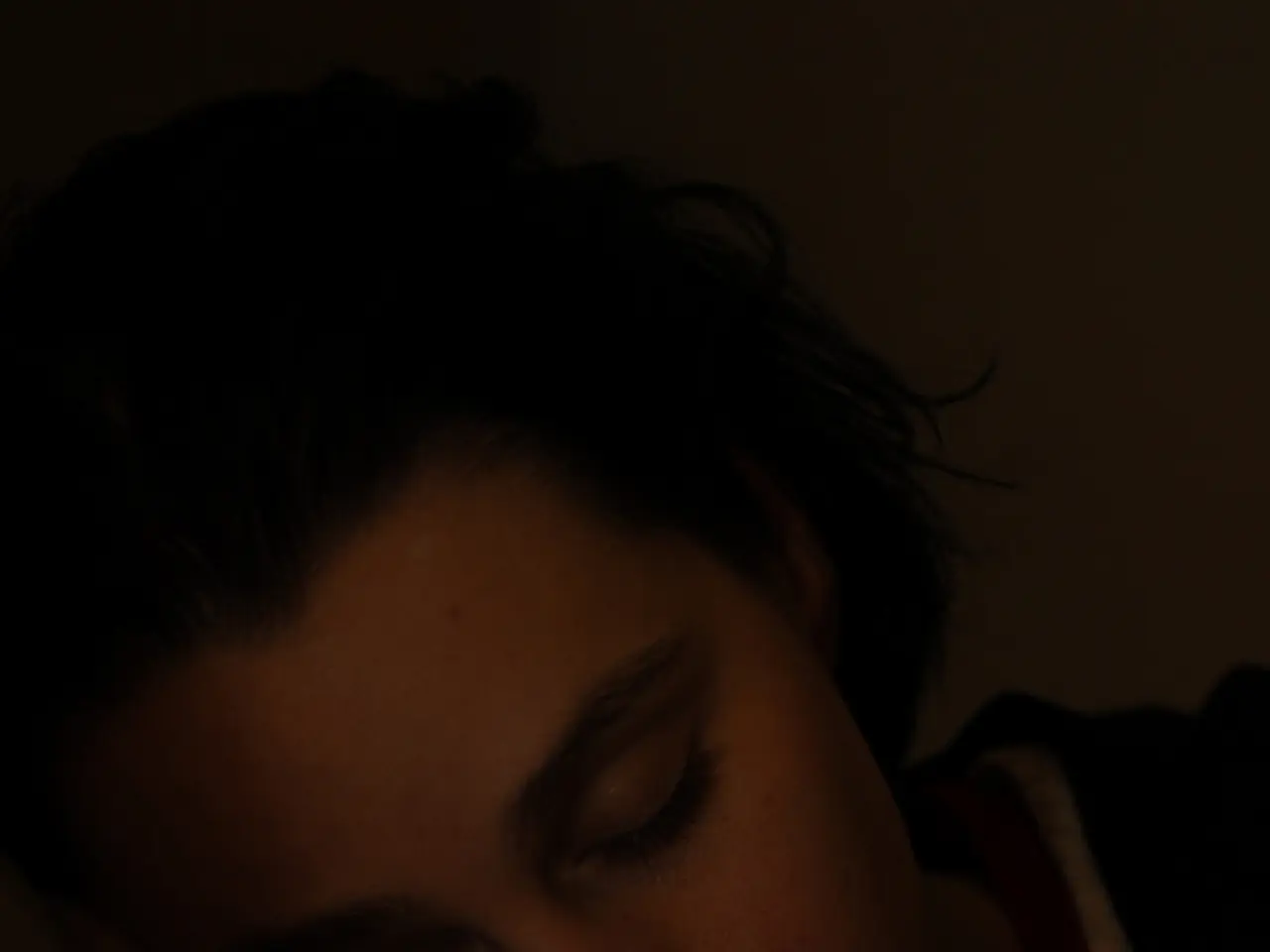Sleeping episodes with involuntary movements may potentially indicate signs of Parkinson's disease.
In the complex world of neurodegenerative disorders, Parkinson's disease (PD) remains a significant concern. This condition, characterised by a slight shaking or tremor at rest in the fingers, thumb, hand, or chin, affects millions worldwide. But did you know that there are early warning signs that could help identify those at risk, years before classic motor symptoms appear?
One such sign is Rapid Eye Movement Sleep Behaviour Disorder (RBD). This sleep disorder, characterised by restless sleep, flailing arms, and kicking out in sleep, has been found to be a strong prodromal (early) nonmotor symptom of PD. Researchers at Aarhus University have established a link between RBD and an increased risk of PD.
RBD often precedes the clinical motor symptoms of PD by a decade or more. In many cases, RBD can appear years before PD diagnosis and serves as a significant risk factor for the future development of PD and other synucleinopathies like Lewy body dementia and multiple system atrophy.
Studies show that a substantial proportion of people diagnosed with idiopathic RBD (iRBD)—RBD without an initially diagnosed neurological disorder—eventually develop PD or related disorders. One long-term study found that about 38% of men aged 50 or older with RBD developed PD, Lewy body dementia, or multiple system atrophy within around 13 years, with this risk rising to nearly 81% over 16 years. Other research confirms that 30% to 66% of individuals with RBD may develop Parkinsonian disorders or dementia within 3 to 7.5 years.
The link between RBD and PD relates to underlying neurodegenerative processes involving α-synuclein pathology and dopamine deficiency. RBD may reflect early brainstem dysfunction, a so-called "body-first" subtype of PD, and is often accompanied by other prodromal features such as hyposmia (reduced sense of smell) and constipation. Patients with both hyposmia and iRBD show worse cognitive performance compared to those with hyposmia alone, indicating an additive effect of RBD on Parkinson’s-related cognitive decline.
If you're a restless sleeper, it could be a very early sign of Parkinson's. Other early warning signs include a soft or hoarse voice, loss of smell, stiffness that doesn't go away as you move, constipation, and changes in handwriting, such as letters becoming smaller and cramped. Dizziness or fainting can also result from PD, due to orthostatic hypotension.
In the long term, these signs can cause brain tissue to break down and lead to symptoms of PD. A study has shown that people with RBD have low blood flow and flow disturbances in the small blood vessels in their brain, which can lead to a lack of oxygen in brain tissue. This can cause flow disturbances in the cerebral cortex, associated with language comprehension, visual construction, and recognition, and are also associated with reduced cognitive performance.
The good news is that there are steps you can take to combat the symptoms and neurological damage of PD. Nutrients such as tryptophan, CoQ10, NADH, melatonin, black tea, resveratrol, and ashwagandha may help. By understanding these early warning signs and the link to RBD, we can identify at-risk individuals for early intervention research and monitoring, potentially leading to improved outcomes for those living with PD.
References:
- Parkinson Disease | Continuum: RBD as prodromal symptom
- PubMed: Impact of dopamine deficiency and iRBD on cognition in early neurodegeneration
- Frontiers in Neurology: RBD as indicator of body-first subtype of PD
- Sleep Foundation: RBD often precedes PD diagnosis and predicts cognitive decline
- Sleep Foundation: Longitudinal studies on RBD predicting PD and related disorders
- [1] PubMed: Impact of dopamine deficiency and iRBD on cognition in early neurodegeneration
- [2] Frontiers in Neurology: RBD as indicator of body-first subtype of PD
- [3] Sleep Foundation: RBD often precedes PD diagnosis and predicts cognitive decline
- [4] Sleep Foundation: Longitudinal studies on RBD predicting PD and related disorders
- Understanding Rapid Eye Movement Sleep Behaviour Disorder (RBD) may be crucial for one's health-and-wellness, as it's been linked to an increased risk of developing Parkinson's disease and other neurological disorders like mental-health issues such as Lewy body dementia and multiple system atrophy.
- Incorporating certain nutrients like tryptophan, CoQ10, NADH, melatonin, black tea, resveratrol, and ashwagandha into one's diet could potentially help combat the symptoms and neurological damage of Parkinson's disease, a condition often preceded by early warning signs such as RBD, constipation, loss of smell, and changes in handwriting, therefore, prompting the need for early intervention and monitoring to improve health-and-wellness outcomes.




